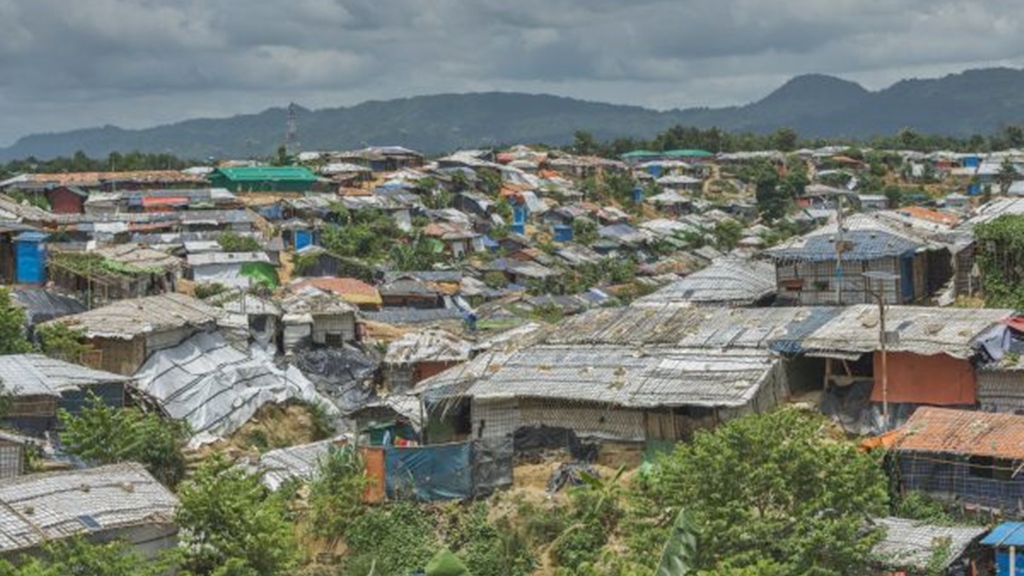
Rohingya Crisis: India’s Actions Must Match its Words
- 19/05/2021
- 0
By Arkoprabho Hazra, The Diplomat
Being transparent and humane will elevate India’s position at the United Nations.
On February 20, the United Nations High Commissioner for Refugees (UNHCR) received information that a vessel with Rohingya refugees was in distress on the Andaman Sea, having no food or water, leading to the death of a few onboard. On February 26, the Indian Coast Guard found this vessel, which had 81 Rohingyas aboard, while eight were dead and one was missing. This incident again brought forward the issue of India’s stance on the Rohingya issue as India was not ready to accept these 81 refugees into its territory. Reuters reported that while India fixed the vessel and provided these refugees food and water and even clothes, authorities did not allow them to enter Indian waters, but were preparing to send them back to Bangladesh, despite civil society organizations urging the government to do otherwise.
When India’s Foreign Minister S. Jaishankar visited Bangladesh, ahead of Prime Minister Narendra Modi’s visit to Bangladesh, it was anticipated that the two countries would also discuss the fate of these 81 refugees. The meeting did not result in any concrete decision. Moreover, there have been no updates on the situation of these refugees, even today. The last piece of information on this matter was provided by Sabber Kyaw Min – founder of the Rohingya Human Rights Initiative – via a tweet that mentioned how neither of the countries had accepted the refugees.
A similar incident occurred back in 2011 when 91 Rohingya refugees were stuck on the Andaman Sea after being sent back by Thai naval officers on an engineless boat. During this incident, one different thing was that the 91 refugees were not kept in their boat at sea but instead, they were at least taken to Port Blair, to prepare them for repatriation to Bangladesh. While India, in 2011, did not intend to keep the refugees on Indian soil for long, the treatment then was more humane than the recent incident.
Another common aspect to note about both these incidents is that after initial reports were shared on the status of the refugees, what followed later was never made public. To date, no one knows where the refugees ended up, be it the 91 in 2011, or the 81 in 2021.
Despite incidents like these taking place wherein no updates about the fate of Rohingya refugees who reached India are shared, the Indian delegation at the United Nations went on to say several positive things that the country has done for the Rohingya community.
A lot was said by the deputy permanent representative of India at the United Nations, Nagaraj Naidu, on the Rohingya matter in a UNSC ARRIA meet that was held on April 9 to discuss the Myanmar issue. During this meeting, Naidu appreciated the efforts of Bangladesh in assisting the Rohingya refugees living in Cox’s Bazar. At the same time, he also noted that India has been providing on-ground support to Bangladesh to assist these refugees, calling on other member states to also assist it, financially or otherwise.
Matters, however, are more complicated.
First, such statements of appreciation on the Rohingya matter were made when neither India nor Bangladesh were open to helping out the 81 refugees stuck on the Andaman Sea earlier this year, by taking them in. Noting that Bangladesh has been taken huge numbers of refugees into its territory since 2017, could India not have taken them in this time especially as it speaks of the need to help the Rohingya and also ameliorate the burden on Bangladesh?
Second, Naidu mentioned India’s efforts to assist Bangladesh through on-ground support in Cox’s Bazar. But one should take note that there is no information available on any such support that India has provided, or even committed to, any time in the past vis-á-vis supporting the Rohingya community sheltered in Cox’s Bazar.
As seen in the past, the April 9 statements once again illustrates how India’s words in the international forum do not align with India’s actions. One might argue that it is very normal for states to not align their actions with what they preach on international forums but in India’s case, words and actions being alike might help further India’s position at the world body.
India needs to act on a few things when it comes to the Rohingya crisis. First, New Delhi needs to be more transparent about its conduct on matters relating to the Rohingya, be it about the fate of Rohingya who manage to reach Indian shores, or the help it provides that it proudly speaks of to the Rohingya in Bangladesh. Second, New Delhi must also revisit the criticisms it has received regarding the detention and deportation of Rohingya in the past one month or so.
Since India is not a party to the Refugee Convention of 1951, it might continue to not take in these refugees. But being more transparent and humane in the handling of these Rohingya refugees might be seen as a big step within the international community and by civil society organizations, elevating India’s position at the world body.
Arkoprabho Hazra






